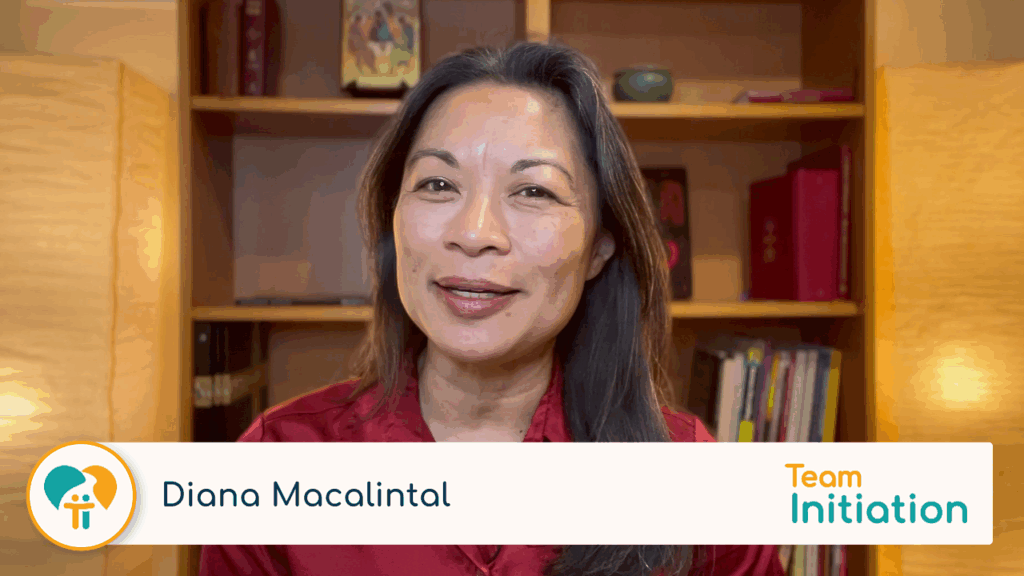
An RCIA leader recently wrote this response to one of our blog posts: “Many of our inquirers are on a ‘fast track’ and we are lucky to get them to attend a session let alone extra parish functions. We know what should be done but the realities of the fast paced life of many of them just doesn’t lend itself to accomplish this.”
Many RCIA team members feel this way, and I sympathize with the frustration. However, I’d like to challenge a few assumptions that might be the cause of our despair.
Busy-ness is a myth
A brain surgeon, in the midst of an operation, is busy. A single mom who has to work three jobs to be able to feed her children is busy. The rest of us — not so much. We fill our lives with lots of optional activities to numb ourselves to the pain or disappointment that we find in the world. Our artificial busy-ness is deadly. It leads to broken families, poor health, and fatal mistakes.
It is exactly this deadly lifestyle that Jesus promises to save us from. When someone tells us they are too busy for Jesus, we have to offer them the peace and salvation from their destructive lifestyles that Jesus promises. To accept their busy-ness as an excuse for not entering into the discipline of the gospel is a failure on our part to hold fast to faith.
Parish is not a collection of functions
The parish is a “City of God.” It is a sacred place that we are drawn into by the mysterious and tremendous power of the Holy One. The fascinating and fundamental activity of the parish is liturgy. It is in the liturgy that the God of Mystery most completely and fully discloses to us what the world cannot see. This divine sight (insight) is developed through a contemplative discipline of seeing with the eyes of Christ and listening with hearts attuned to the gospel. It is not a discipline that can be “fast tracked.” It is a lifelong practice.
The fascinating and fundamental activity of the parish is liturgy.
We know very little about what should be done
We sometimes fool ourselves into thinking we know who God is and how we are supposed to lead people to God. Since the invention of the printing press, we have been able to mass-produce manuals, textbooks, catechisms, and ritual books that have contributed to this illusion. What is true is that every day we are as Moses before the burning bush.
We approach the Mystery, shoeless and awe-struck, beseeching a prophetic word. Each inquirer who lays before us her ultra-busy, fast-tracked life is seeking freedom. Each inquirer’s path to freedom will be different. It is not ours to say how or if they will find that freedom. Only the Spirit of the Risen One can free them. All we can do is accompany them on their journey.
Attending sessions is not the same as making disciples
Jesus told us to make disciples, not scholars. The church teaches that “comprehensive formation includes more than instruction: it is an apprenticeship of the entire Christian life” (General Directory for Catechesis, 68). If we understand the catechumenate as an apprenticeship, it changes our priorities. As facilitators of an apprenticeship process, we will mostly be placing apprentices in the company of the artisans of Christian life, that is, the people of God. Seekers will learn to become disciples by shadowing and imitating actual disciples. Very little discipleship takes place in a classroom.
If we understand the catechumenate as an apprenticeship, it changes our priorities. As facilitators of an apprenticeship process, we will mostly be placing apprentices in the company of the artisans of Christian life, that is, the people of God.
Jesus is the only reality
When we talk about accepting reality (like the fast-paced life of the world today), we are denying the true reality of God’s reign. Christians are located in a world that prides itself on busy-ness, but we know that is a false reality. What is real is God’s love for us, especially for those society has thrown away. Reality, for Christians, is a constant going out. Going out not to soccer practice or an 80-hour-a-week job or a trip to Disney World. Rather, going out “to the peripheries, not only geographically, but also the existential peripheries: the mystery of sin, of pain, of injustice, of ignorance and indifference to religion, of intellectual currents and of all misery” (Pope Francis, Joy of the Gospel).
When seekers come to us with a false understanding of reality, our mission to go out to the peripheries is compromised if we accept their understanding the world as true. Instead, we must — gently, pastorally, respectfully — challenge their misperception and offer them the Spirit of truth (Jn 16:13).
Prepare for disappointment
I guarantee that when we start speaking the truth, we will encounter a lot of “rich young men” who will walk away (Mt 19:22). You will not be able to release every seeker you meet from his busy-ness. But Jesus is our mentor in this. He never compromised the message. He never fast-tracked the gospel. And he never stopped calling others to discipleship. That’s the model we should follow.
Your Turn
What are the most prevalent forms of “busy-ness” discussed in your faith community? What peripheries and margins are you being called to through your RCIA ministry? Share your thoughts in the comments below.


















Right on!
So very true. So many people today find their value in how busy they are instead of how much they follow the Light of Christ. We do make a mistake if we “fast-track” them to baptism because they are the ones (most likely) who seldom return after Easter. Being Catholic is a way of life.not just something to do on Sunday morning. I like the idea of having our seekers, catechumens and candidates being considered apprentices who study under a disciple. This is the way Jesus did it and it worked for him.
Well said!!!!
The place I find most frustrating re busy-ness is when I do Confirmation preparation with young people in junior high. Dance and music lessons and concerts, sports practices and games, and participation in all kinds of other things mostly connected with school are forever getting in the way. Since RCIA deals mostly with adults, the problem is a bit less, but even so, we have to squeeze our sessions into the hour & 1/2 between the two morning liturgies. I feel like we’re always a day late and a dollar short.
Another way of saying this is that discipleship requires a conversion that is reflected in your life choices. Catholicism is not an ‘add on’ but a choice for living life differently; with a different life focus and purpose.
If going to church is viewed as one activity among many, then we are in trouble. It does seem that families with kids in sports are far more willing to get them to all practices and games, following the “orders” of the coach. But participating in the Eucharist? They’re not sure that they will always have the time.
As a former RCIA candidate, I have looked at being a Catholic Christian, not as an activity, but as addressing the fundamental purpose of our lives. Sports, as much fun as they are, cannot do this.
I agree with everything you have said. Being a Catechist I am Formed, if I may use that word to follow the direction of the Liturgical Minister which is generally “The way we have always done it”, way.
I brought that up at a recent conference, not in the context, rather bemoaning the lack of Sponsors.
To my surprise, a visiting Priest was in the back of the class and said I had hit the nail on the head. The room fell silent when he further noted sponsoring should be a ministry itself. I have had the honor to do both and can say, walking with the inquirer is much more rewarding.
I’m all in that we are talking a life style, not just another activity to fit into our busy-ness. I’m new to my role as RCIA coordinator so just accepted the “too busy” as not ready. This post makes me clearly aware of the error in that thinking, thank you. Can doneonr offer some practical ways to engage an inquirer to prioritize RCIA? Once they are “in the door” I have witnessed that with the right focus the Holy Spirit can be counted on.